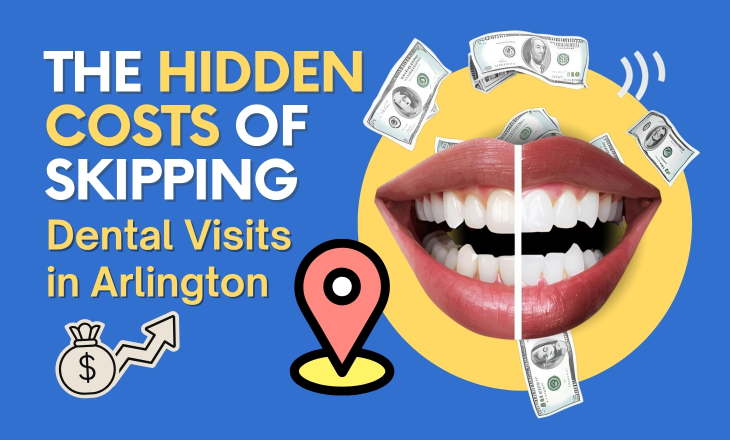In the bustling heart of Arlington, dental visits often slide down the priority list, overshadowed by everyday responsibilities. However, the decision to skip these vital check-ups can lead to hidden costs that extend far beyond your wallet. While it may seem harmless to postpone routine cleanings, the reality is that neglecting your dental health can result in more significant issues later on—issues that can drain your finances, time, and peace of mind.
From costly emergency procedures to the impacts on your overall health, the true price of avoidance can be staggering. In this article, we’ll uncover the often-overlooked expenses associated with ignoring dental visits and highlight the long-term benefits of making oral care a priority. Discover what you’re really paying for by opting out of regular dental check-ups, and learn how investing in your smile can save you from future headaches—both financially and physically.
Why Routine Dental Visits Are Essential for Arlington Residents
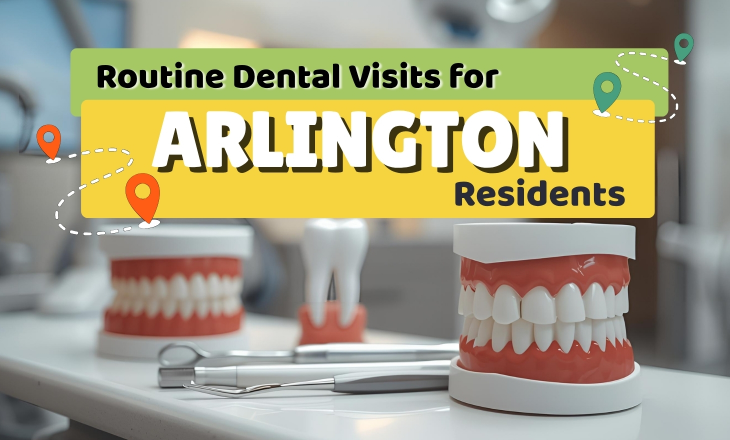
In the vibrant and fast-paced community of Arlington, dental visits often fall by the wayside, overshadowed by pressing work commitments and personal errands. However, routine dental check-ups are not just about maintaining a bright smile; they are a crucial component of your overall health and well-being. Regular visits to the dentist serve as preventive measures that can identify and address minor issues before they escalate into significant problems. This proactive approach ensures that your oral health remains in optimal condition, preventing the onset of diseases and maintaining the functionality of your teeth.
Routine dental visits also provide an opportunity for professional cleanings that remove plaque and tartar buildup, which are impossible to eliminate with regular brushing and flossing alone. These cleanings not only enhance the appearance of your teeth but also prevent cavities and gum disease. Additionally, dentists use these visits to educate patients on proper oral hygiene techniques, personalized to their specific needs, ensuring that they can maintain their dental health between appointments. Want to see how prevention pays off? Here are 5 signs you need to see a dentist before it’s too late. This education is invaluable, as it empowers individuals to take control of their oral hygiene and make informed decisions about their dental care.
Moreover, regular dental check-ups allow for the early detection of more serious health issues. Dentists can identify signs of oral cancer, diabetes, and other systemic conditions during routine examinations. Early detection of such conditions can lead to timely interventions, which can be life-saving. In essence, routine dental visits are a critical aspect of preventive healthcare, offering numerous benefits that extend far beyond the aesthetics of a healthy smile. For residents of Arlington, prioritizing these visits can lead to a healthier, happier life, free from the complications of neglected oral health.
The Financial Impact of Ignoring Regular Check-Ups

Neglecting routine dental visits may seem like a way to save money, but it can lead to costly treatments over time. Minor issues can escalate into major problems, resulting in emergency procedures and significant out-of-pocket expenses.
Key Financial Consequences of Skipping Dental Check-Ups:
- Progressive Damage: Untreated cavities or gum issues can worsen, requiring expensive procedures like root canals or extractions.
- Emergency Visits: Dental emergencies often involve urgent, high-cost interventions that could have been prevented.
- Higher Long-Term Costs: Minor preventive care is far less expensive than advanced treatments needed later.
- Limited Insurance Benefits: Skipping check-ups may lead to out-of-pocket expenses for procedures that insurance would have partially covered.
- Impact on Overall Health: Dental problems can contribute to broader health issues, potentially increasing medical costs over time.
Learn about the true cost of missing your dental appointments and how it adds up.
Investing in regular dental check-ups protects both your oral health and your wallet, ensuring you avoid unnecessary expenses while making the most of insurance coverage.
Hidden Emergency Costs from Untreated Dental Issues
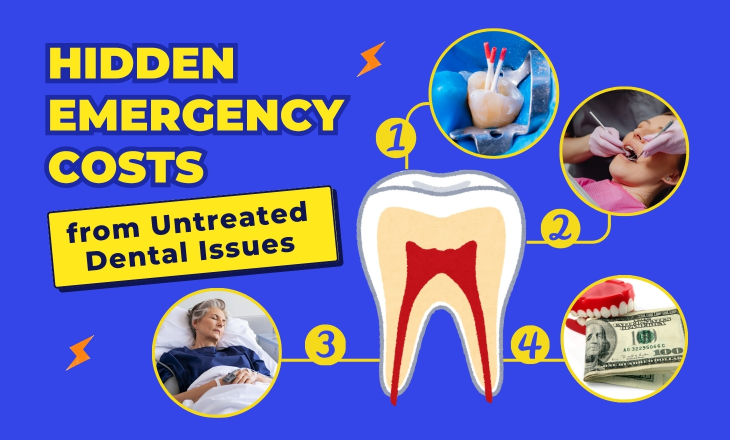
Ignoring dental problems can lead to unexpected emergencies that are both painful and expensive. Untreated cavities, gum disease, or infections often escalate quickly, resulting in urgent procedures that carry high financial and health consequences for patients.
1. Root Canals and Extractions
When minor cavities are ignored, bacteria can reach the tooth’s pulp, leading to severe pain and infection. Emergency root canals or extractions are costly procedures, often far exceeding the price of early preventive treatments.
2. Emergency Dental Visits
Dental emergencies typically require immediate attention outside of regular office hours. Don’t wait until it hurts—know the common signs that you need a root canal before it turns critical. These visits involve higher fees, urgent procedures, and sometimes sedation or anesthesia, all of which increase the overall cost significantly.
3. Hospitalization for Severe Infections
In rare but serious cases, untreated dental infections can spread, causing abscesses that require hospitalization. Medical interventions for severe dental infections can result in substantial expenses beyond standard dental care.
4. Compounded Treatment Costs
Delaying treatment often means multiple procedures are needed to restore oral health. A single neglected cavity can escalate to fillings, crowns, or root canals, multiplying costs and extending recovery time.
By addressing dental issues early through regular check-ups, patients can avoid hidden emergency costs, preserve their oral health, and minimize financial strain.
How Skipping Cleanings Affects Your Overall Health
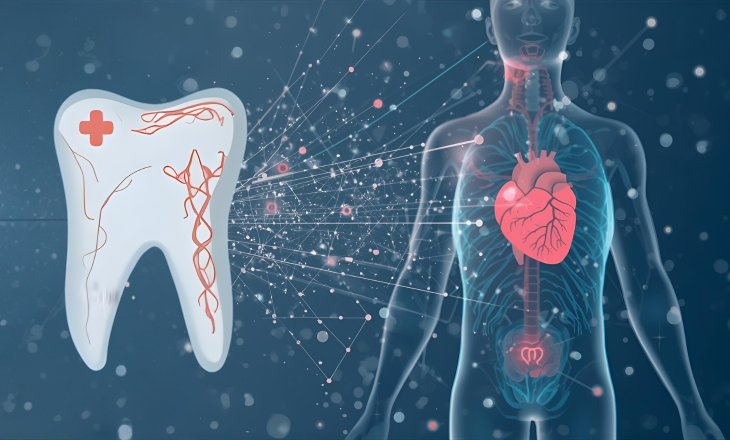
Neglecting regular dental cleanings can have far-reaching consequences that extend beyond your mouth, impacting your overall health in significant ways. Oral health is closely linked to systemic health, and poor dental hygiene can contribute to the development of various medical conditions. For instance, gum disease, which is often caused by plaque and tartar buildup, has been associated with an increased risk of cardiovascular diseases. The inflammation and bacteria from gum disease can enter the bloodstream, potentially leading to heart attacks, stroke, and other serious cardiovascular issues.
Additionally, skipping dental cleanings can exacerbate conditions like diabetes. Diabetic patients are more susceptible to infections, including periodontal disease, which can make it more difficult to control blood sugar levels. Conversely, managing periodontal disease through regular cleanings and dental care can help improve diabetes control. This bidirectional relationship underscores the importance of maintaining good oral health to support overall health and well-being. By neglecting dental cleanings, you may inadvertently be compromising your ability to manage chronic conditions effectively.
Oral health also plays a crucial role in respiratory health. Bacteria from the mouth can be inhaled into the lungs, leading to respiratory infections, pneumonia, and exacerbations of chronic obstructive pulmonary disease (COPD). Regular dental cleanings help reduce the bacterial load in the mouth, thereby minimizing the risk of respiratory complications. Furthermore, poor oral hygiene has been linked to adverse pregnancy outcomes, such as preterm birth and low birth weight. If your gums bleed easily, you might be facing deeper problems. Discover the gum disease signs and causes now. Pregnant women who maintain regular dental visits are more likely to have healthier pregnancies and reduce the risk of such complications. In essence, investing in regular dental cleanings is a vital aspect of maintaining holistic health and preventing the systemic effects of poor oral hygiene.
The Role of Preventive Care in Avoiding Complex Procedures
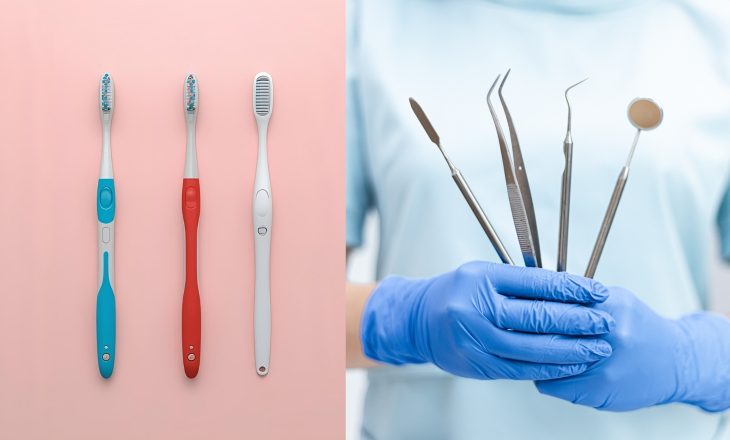
Preventive dental care is essential for maintaining healthy teeth and gums while minimizing the need for complex treatments. Early detection and proactive measures protect your smile, save costs, and prevent invasive procedures in the future.
Key Benefits of Preventive Dental Care:
- Early Detection: Identifies cavities and issues before they worsen.
- Cost Savings: Reduces the need for expensive procedures like root canals and extractions.
- Gum Health Maintenance: Prevents the progression of periodontal disease.
- Protective Treatments: Fluoride and sealants shield teeth from decay.
- Guidance & Education: Promotes proper brushing, flossing, and oral habits.
- Long-Term Smile Preservation: Maintains natural teeth structure and function.
- Reduced Risk of Complications: Avoids pain, infection, and extensive dental work.
Prioritizing preventive care ensures that your oral health is maintained efficiently, reducing the likelihood of future complications and supporting a confident, healthy smile for years to come.
The Long-Term Risks of Postponing Dental Appointments
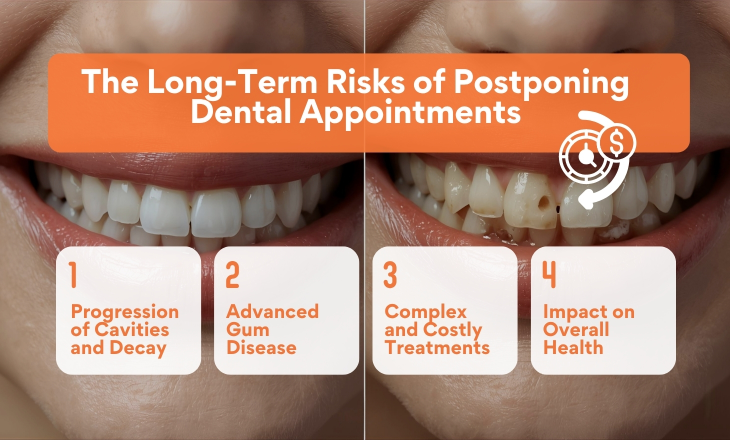
Delaying dental visits can have serious long-term consequences. Untreated cavities, gum disease, and other oral health issues often worsen over time, leading to costly procedures, tooth loss, and even systemic health complications.
1. Progression of Cavities and Decay
Minor cavities can escalate into severe decay when left untreated. Over time, this can result in root canals, crowns, or tooth loss, increasing both discomfort and treatment costs.
2. Advanced Gum Disease
Postponed dental care allows plaque and tartar to accumulate, worsening gum disease. This can cause inflammation, gum recession, and eventual tooth loss if not addressed promptly.
3. More Complex and Costly Treatments
Neglecting regular check-ups often leads to the need for invasive procedures. Treatments like extractions, implants, or surgical interventions are more expensive and require longer recovery times.
4. Impact on Overall Health
Poor oral health is linked to systemic conditions such as heart disease, diabetes, and respiratory issues. Delaying dental care increases the risk of these complications over time.
Regular dental visits are essential to prevent serious oral and systemic health issues, ensuring your smile remains healthy and reducing the need for extensive treatments in the future.
Mental and Emotional Costs of Dental Problems
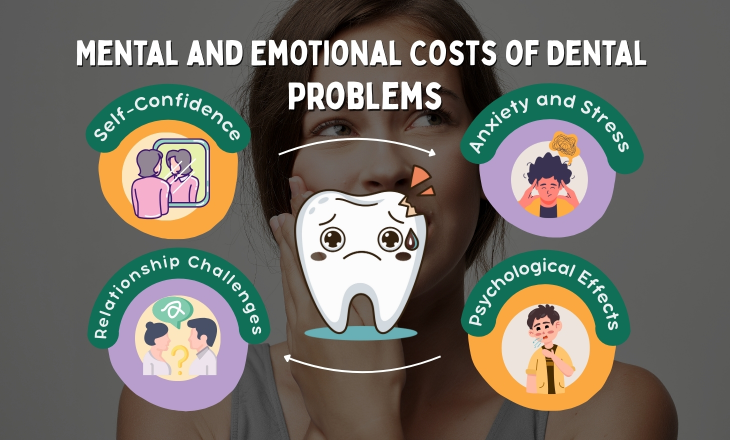
Dental problems affect more than oral health—they can significantly impact mental and emotional well-being. Pain, discomfort, and self-consciousness from untreated dental issues often lead to stress, anxiety, and reduced confidence in social and professional settings.
Impact on Self-Confidence
Neglected dental issues can make individuals hesitant to smile or speak publicly. Visible problems such as missing teeth, discoloration, or misalignment affect self-esteem, influencing social interactions and professional presence, which can lead to isolation and reduced opportunities.
Anxiety and Stress
Chronic dental pain or the fear of worsening conditions creates ongoing stress and anxiety. Anticipating emergency dental visits or invasive procedures can disrupt daily life, affecting sleep, focus, and overall mental health.
Social and Relationship Challenges
Children, teenagers, and adults with noticeable dental issues may experience social stigma or bullying. Even subtle concerns about appearance can reduce engagement in social activities, weakening personal and professional relationships.
Long-Term Psychological Effects
Prolonged neglect of oral health can contribute to persistent emotional strain, including low self-esteem and depression. Regular preventive care and timely treatment help maintain oral health while supporting long-term mental and emotional wellness.
Conclusion: Investing in Regular Dental Care: Saving Money and Health in the Long Run
In conclusion, the hidden costs of skipping dental visits in Arlington are far-reaching and multifaceted, affecting not only your oral health but also your overall well-being and finances. While it may seem convenient to postpone routine check-ups, the long-term consequences can be significant, leading to costly emergency treatments, complex procedures, and a decline in both oral and systemic health. By prioritizing regular dental visits and preventive care, you can avoid these pitfalls and ensure that your smile remains healthy and vibrant.
Investing in regular dental care is a proactive approach that pays dividends in the long run. Routine check-ups and cleanings help prevent the progression of dental diseases, reduce the risk of emergencies, and maintain the aesthetic appearance of your smile. Additionally, regular dental visits allow for the early detection of potential health issues, enabling timely interventions that can improve your overall well-being. The financial benefits of preventive care are also substantial, as it helps you avoid the high costs associated with emergency treatments and complex procedures.
Ultimately, making dental care a priority is an investment in your health, confidence, and quality of life. Routine visits are your best defense against costly treatments and painful surprises. 👉Book your next dental check-up in Arlington or Vienna and start protecting your smile today. By committing to regular dental visits, you can enjoy the peace of mind that comes with knowing your oral health is in good hands. In the bustling community of Arlington, where daily responsibilities can easily overshadow personal care, taking the time to prioritize your dental health is a decision that will pay off in numerous ways. So, schedule that dental appointment today and take the first step towards a healthier, happier future.


